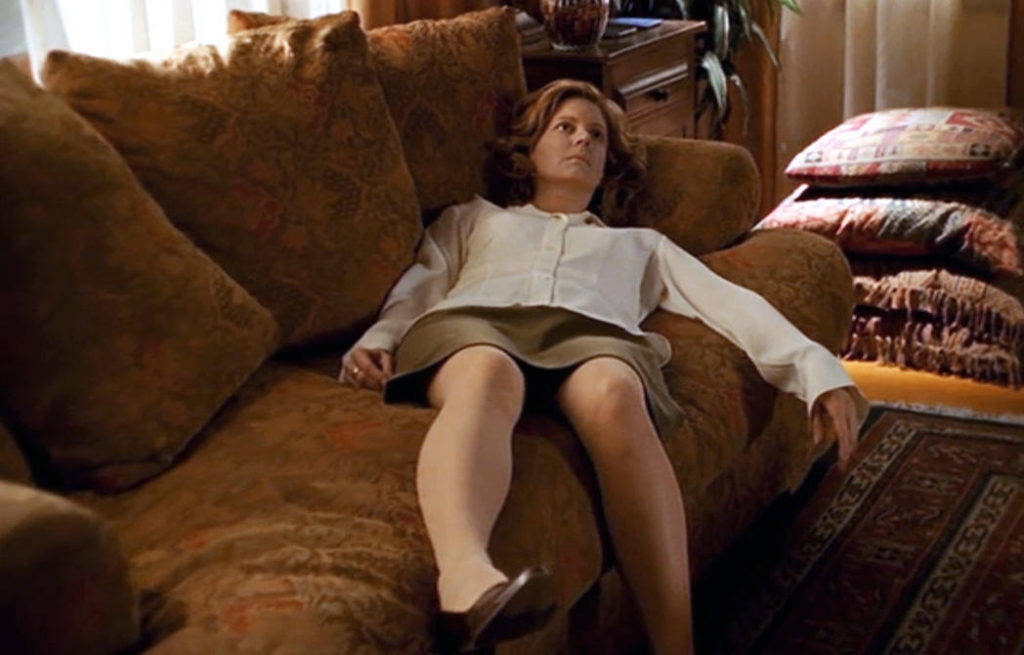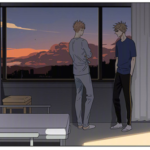
Joyce Summers is the best parental figure in Buffy the Vampire Slayer, even though it took her a while to notice her daughter was a hunter. She notices her daughter’s patterns and cared about her enough to ask and support her. Yet she was not a mother to her daughter alone, Joyce was a mother to the whole Scooby Gang and was a close friend to Rupert Giles. So it isn’t a surprise that the whole gang broke down and grieved Joyce’s passing in The Body. It isn’t surprising if the viewer broke down with them either. This isn’t only the passing that made an impact, but how well grief is portrayed in the episode makes The Body something truly important in the Buffy universe.
Buffy discovering her mother’s body was a quiet affair. Joyce had been diagnosed with brain cancer earlier in the series but went into remission. Buffy finds her laying on the couch and when Joyce doesn’t respond, Buffy knows something is up. She calls her “mommy” before becoming frantic and scared beyond belief. Buffy is a slayer, attacking vampires and demons, and saving the world. Yet, facing her mother being unconscious, she panicked and reverted to a child who wants her mother. When she couldn’t get through to her mother, after contacting 911, she calls her father figure: Giles. He comes in and, as soon as he sees the situation, he holds Buffy in his arms. But in her shock she was unresponsive.

Right away, the episode shows different people’s reaction to a death of a loved one and how different professionals react to death. The professionals called Joyce “the body”, objectifying death and detaching themselves from the situation. When Buffy uses their terminology, it shows her shock and disbelief matching her reaction to her wording. Still, she is the older sister and she has the misfortune to inform her younger sister. Throughout this whole opening sequence, Buffy was remembering past interactions, imagining her mother getting better, and reacting dazedly. The only moment Buffy knows how to react and becomes herself again is when she has to protect Dawn from the vampire at the end of the episode. The opening sequence’s narrative shows the shock of death and the trauma of finding a loved one gone. The end sequence shows acceptance doesn’t come easily. For some, especially for Buffy, it is the act of killing a vampire like she always does, returning to her regular routine, that finally helps her admit the reality of the situation.
Meanwhile, Dawn Summers was having a normal day at school and was freaking out over a guy and a female bully. She was in the middle of art class when Buffy interrupts. Dawn confronted her sister who was hesitant to tell her in the middle of school, but Buffy was forced to. Dawn breaks down, showing her young age and inexperience. She literally falls to the ground, broken by her mother’s passing. Dawn’s situation shows the shock of loss, expressing her disbelief and needing to see her mother’s body to believe what Buffy was telling her. There is no rhyme or reason for death. It works on its own schedule, leaving the loved ones behind.

The Scooby Gang is introduced in this episode in quiet contemplation. Xander Harris was angry at death and the world, blaming everyone for Joyce’s death and becoming violent. Willow Rosenberg didn’t know what to wear and stressed about how to support Buffy, forgetting that she is mourning as well and obsessing over the details. Tara Maclay has experienced death before with the passing of her own mother, sympathizing with everyone yet keeping a clear head. Anya Jenkins was questioning everything, showing her pain through confusion and not understanding how and why death happens. The awkwardness was prevalent in this scene, like death is a weight on top of their heads. Each character is torn apart by the death of their mother figure and needing to support their friend in her time of mourning.
Throughout the episode, there are scenes that show the coroner operating on Joyce’s body trying to figure out the cause of death. There is lack of music and noise that usually sets the mood in most of these episodes, creating an aura of hurt and heartbreak. The whole situation is made more eerie and realistic because of that. Furthermore, the amazing cinematography and directing confirms the feelings of despair and pain. Joss Whedon was able to successfully portray different grieving methods in The Body.
Without dramatization or excess, The Body was able to shine while explore the feelings of despair and pain that accompanies the death of a mother.




